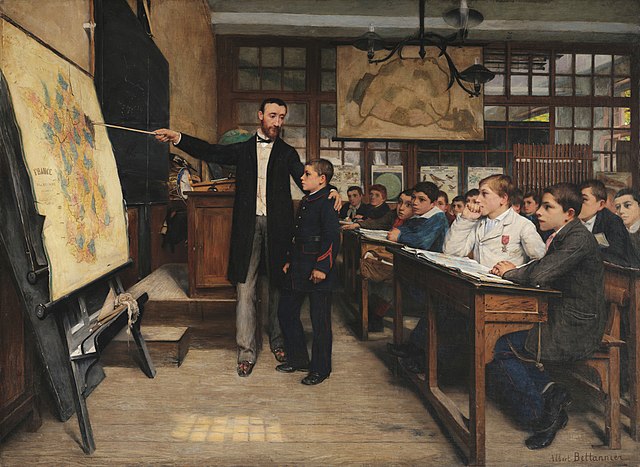

This course introduces the study of history and geography and covers the major cultures from around the world. Tracing first the story of western civilization through its ancient and European stages, it then devotes units to China, Japan, India, Africa, Russia, and the Americas. The primary textbook is All Ye Lands: Origins of World Cultures.
This course may be taken as a stand alone, but is crafted to integrate with Great Books Primer: Introduction to Western Civilization.
- Teacher: Mr. Matthew Walsh

This course covers the history of the Jews, Greeks, and Romans, focusing upon the political, social, and cultural developments of these three peoples. The first part, covering Jewish history, deals with the time of the patriarchs up to the fall of Judah. The second part recounts Greek history from the prehistoric age up to Alexander the Great. The third part covers Roman history, outlining the developments of Rome from its foundation to the assassination of Caesar. The primary textbook, Outlines of Ancient History, is included with the course.
This course may be taken as a stand alone, but is crafted to integrate with Great Books 1: Ancient & Classical Times.
- Teacher: Mrs. Maren Sang

This course covers the history of the West from the birth of Christ, through the development of Christendom, up through the period of religious wars following the Protestant Reformation, focusing upon the political, social, and cultural developments of the West. The primary textbook is Light to the Nations, The History of Christian Civilization, Part 1.
This course may be taken as a stand alone, but is crafted to integrate with Great Books 2: The Christian Age.
- Teacher: Dr. Ian Schwab

This course continues the study of the history of West, particularly Europe, from the religious wars after the Protestant Reformation up to contemporary times, focusing upon the political, social, and cultural developments of the West. The primary textbook is Light to the Nations, The History of Christian Civilization, Part 2.
This course may be taken as a stand alone, but is crafted to integrate with Great Books 3: Modern Times.
- Teacher: Mr. Joshua Keatley

This course presents the history of North America from the landing of Columbus in 1492 to the late 20th century. It tells the story of the French, the Spanish, Dutch, Russian, and English settlements, and of the native peoples and cultures with which they interacted and came in conflict. It continues the story of the European settlement, focusing on the United States as the representative of Anglo-American culture and Mexico as the representative of Latin American culture.
This course may be taken as a stand alone, but is crafted to integrate with Great Books 4: The American Idea
- Teacher: Mr. Matthew Walsh

This course begins with a consideration of the idea of history itself, followed by a look at the basis for comparing and critiquing civilizations. We rely upon the great Catholic historian, Christopher Dawson especially. We then turn to a survey of the great civilizations of world history with the particular goals in mind of assessing them on the grounds we have established and comparing them to our own tradition. Even as the course seeks to discover universal lessons about human nature and societies, it will find ways to better understand the particular value, idiosyncrasies, and meaning of Western Christian Civilization. Keeping the West as the students' point of reference is of fundamental importance for engendering in the students a proper love of their own culture--that they may conserve its achievements, better its faults, and relish its traditions--even as they appreciate the cultures and stories of other peoples.
This course may be taken as a stand alone, but is crafted to integrate best with Great Books 5: Return to Tradition
- Teacher-Author: Dr. Ian Schwab
